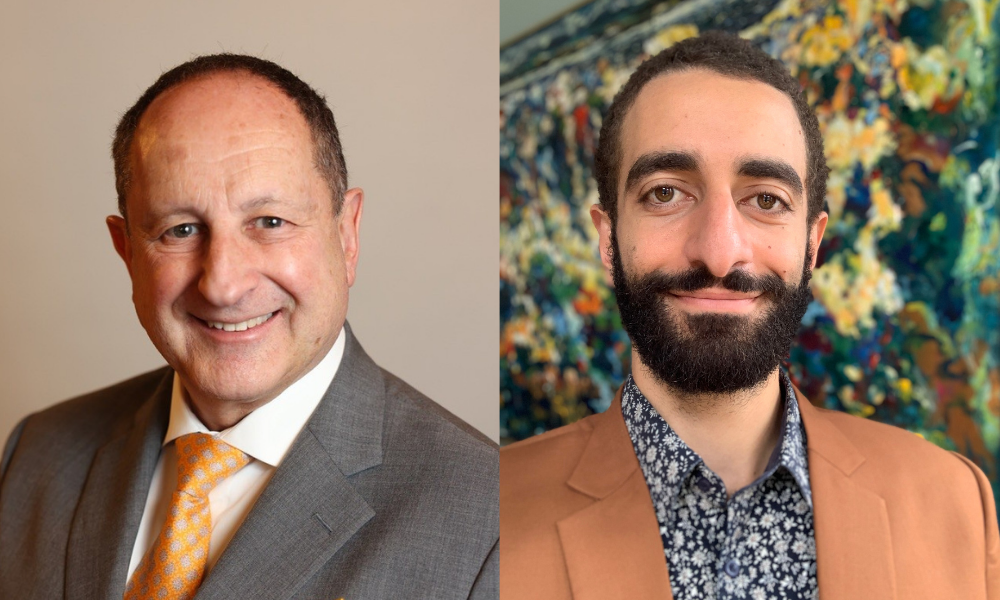
As part of the settlement, Kareem Ibrahim posted an apology to Sergio Karas on LinkedIn

Two immigration lawyers have reached a settlement after one of the lawyers, who identifies as a Zionist, sued the other for defamation over a LinkedIn comment that accused him of supporting genocide.
Under the Aug. 12 settlement terms, Kareem Ibrahim, who posted the comment, will pay Sergio Karas $12,500 over the next 12 months. As part of the settlement, Ibrahim also posted an apology on LinkedIn, which must stay online for 30 days.
“On February 29, 2024, I publicly defamed a fellow Member of the Ontario Bar, Sergio Karas, by publicly stating that he supports genocide,” Ibrahim wrote in his apology.
“I was wrong, and I should not have accused Mr. Karas of something so egregious. I have no evidence at all suggesting he supports genocide,” Ibrahim added. “For clarity, I do not believe that Mr. Karas supports mass extermination, genocide or mass murder. I do not believe that he supports criminality, terrorism or massacres. I do not believe he is a vindictive or hateful person.
“In fact, I do not know Mr. Karas personally and I never should have published such an obscene allegation.”
According to Karas’ statement of claim, Ibrahim posted his disputed LinkedIn comment on a post Karas published in February 2024. The post included a picture of Karas and others at an American Bar Association conference focused on energy issues, where Karas co-chaired a panel.
In his caption, Karas tagged the other individuals in the picture and thanked them for participating in the panel.
Ibrahim commented on the post, “Do these lawyers also support genocide, like you, Sergio R. Karas?” Ibrahim included a link to a Jan. 23 Canadian Lawyer article that featured comments by multiple lawyers on a new visa pathway for Palestinian-Canadians to bring over family members fleeing the war in Gaza. Karas was quoted in the article, citing concerns that Canada didn’t have enough resources to vet newcomers properly and that temporary residence for Gazans could “stoke the flames of antisemitism, which is on the rise.”
Karas added, “No one is saying that all Muslims are terrorists… but unfortunately, many countries in the Muslim world have a terrorism and radicalization problem. Hence, additional security screening is required.”
Shortly after Ibrahim posted his comment, Karas filed a lawsuit against him in the Ontario Superior Court of Justice, accusing the lawyer of defamation. Karas alleged that Ibrahim’s comment harmed and would continue to harm his personal and professional reputation and relationships. He also said he suffered a loss of competitive advantage in the workplace due to the comment.
His claim said Ibrahim published his comment “without one shred of evidence or proof substantiating the allegation that Mr. Karas supports genocide.” Karas added that publishing the comment online gave it “absolute and immediate worldwide ubiquity and accessibility, and [made] it accessible to an indeterminate number of third parties.”
In an amended statement of defence filed in April 2024, Ibrahim countered that his comment was not defamatory. He noted that after the Canadian Lawyer article was published, but before he posted his comment, he privately emailed Karas a link to the article with the message, “Your legacy will be one of someone who abused human rights language to defend atrocious human rights violations.” Ibrahim said Karas did not respond to the email.
In the weeks that followed, Ibrahim said he was disturbed to see other immigration and refugee lawyers “perpetuating harmful stereotypes on social media about Palestinians, vilifying them and completely erasing the fact that the Israeli government has been committing war crime after war crime with no accountability whatsoever.”
After he received notice of Karas’ suit, Ibrahim privately apologized to Karas, deleted his LinkedIn comment, and replaced it with an apology. He noted only nine people "liked" Karas' original post.
Ibrahim argued his comment was based on facts and information “well known in the community and available online that are true, or substantially true,” including that Karas is “a self-professed Zionist who supports the State of Israel and believes that the Jewish people have a right to Palestinian land obtained by way of ethnic cleansing in and since 1948.”
He further suggested that Karas’ Canadian Lawyer quote, suggesting that “many countries in the Muslim world have a terrorism and radicalization problem,” was racist.
On Wednesday, Karas told Law Times he decided to take legal action because he was tired of seeing accusations against members of the Jewish community that painted them as “accomplices to genocide, or genocide supporters.”
Noting that his father was a Holocaust survivor from Poland, he said, “I know what antisemitism looks like.” The lawsuit is meant to “send a message, basically to the public at large, especially to the legal community, that this type of accusation that has absolutely no basis cannot be tolerated.”
He added that he did not profit from the settlement, which will cover his legal fees.
Ibrahim said Wednesday that he decided to settle the matter because he “was concerned that someone who shares some or all of [Karas'] political views may preside over the trial, given the current stance and decisions of our own government.”